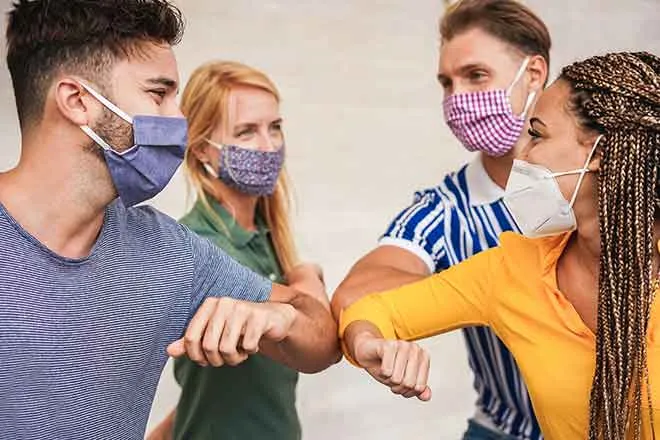
Daily Audio Newscast - November 26, 2025
© AlexLMX - iStock-823000260
Six minutes of news from around the nation.
Ukraine says 'understanding' reached with US on peace plan, as Trump says his envoy will meet Putin; What tariffs and import limits mean for Missouri holiday shoppers; NYC's green spaces mitigate urban climate, health harms; Provider to politics: WI child care worker runs for office.
TRANSCRIPT
The Public News Service, Daily News cast, November the 26th, 2025.
I'm Mike Clifford.
Ukraine says a common understanding has been reached with the US on a peace deal aimed at ending the war with Russia.
The proposal based on a 28 point plan presented to Kiev by the US last week, which American and Ukrainian officials worked on during the weekend talks in Geneva.
That for the BBC.
They report in a post on social media, President Trump said the original plan had been fine-tuned with additional input from both sides.
Trump added, "I've directed my special envoy Steve Whitcoff to meet with President Putin in Moscow and at the same time Secretary of the Army Dan Driscoll will be meeting with the Ukrainians."
Meantime as Black Friday approaches, Missouri shoppers may find the jingle in their holiday shopping rings a little different this season.
Retail experts say federal policy is shaping what ends up in carts this year, pushing companies to be more selective.
Jason Miller is a supply chain expert at Michigan State University, who says shoppers probably won't have the selection that they're normally used to seeing this time of year.
And that is because importers are being quite cautious and only bringing in their best sellers and or the products that they make the most profit on per sale.
And the big reason for that is because of the tariffs.
He points out that shoppers may notice subtle quality shifts such as fewer accessories or slightly cheaper materials as companies look for ways to cut cost.
Crystal Blair reporting
And New York City's urban jungle is transforming into an urban farm.
Environment and community groups are taking a rural approach to urban spaces nationwide, leading to increased climate and health benefits for residents.
The in 2024, Alicia White heads the nonprofit project Petals, providing information and services for underserved communities to create green spaces.
She says these spaces help address citywide climate impacts.
A lot of people don't know these green spaces help to mitigate a lot of the flooding places like New York City has, and that we have been experiencing as climate change accelerates, we have been experiencing extreme flooding, and we could calm a lot of that if we had more green spaces and garden spaces throughout the year.
The trend comes as New York City's budget for climate change mitigation increases for 2026, although the severity of storms is growing too.
White says different areas have different priorities for green space.
In Southwest Queens, she says one garden space is dedicated to growing crops and produce.
Another builds a sense of community in the Millbrook Houses, a public housing project in the South Bronx.
Adding green spaces to cities also helps to address what's known as the urban heat island effect when a neighborhood absorbs the sun's energy during the day and releases the heat at night.
Jennifer Buscello with Colorado State University says rooftop solar installations can turn urban heat into food.
Crops grow differently on green roofs than they do on the ground, and most of our high-value crops.
I'm Edwin J. Viera.
This story was produced with original reporting by Matt Simon for Grest.
This is Public News Service.
Experts say a growing number of child-care providers are stepping into political advocacy and even running for public office to address what they call a broken U.S. child-care system.
A longtime child-care provider in rural Wisconsin, Corrine Hendrickson says she's been advocating for increased funding in the state budget for more than a decade.
She had to close her childcare business this year because she could no longer afford to keep it running.
That's when she decided to run for office.
Hendrickson says in the time she's been campaigning, she's talked to numerous families who are struggling with childcare costs, including those who accumulated debt from their children's early years or decided against having more children due to childcare expenses.
To me, it's heartbreaking and it's against everything that America is supposed to stand for, that we're supposed to be able to live the life that we choose and the government should stay out of our way but because our government is not investing, it's actually getting in our way.
She says the goal is to work toward universal childcare in Wisconsin and eventually gain enough momentum across the country to impact federal legislation.
I'm Judith Ruiz Branch reporting.
This story was produced with original reporting from Rebecca Gale with the Better Life Lab at New America and the 74.
Next day, $2 million grant from United Way of Central Indiana is funding a program to change lives in Indianapolis Eastside communities.
The Indie East Guaranteed Income Initiative, or IGGI, offers these funds to some local residents for 18 months.
Program manager Tylynn Johnson says financial literacy classes are also offered and accessing childcare or working toward housing stability are part of the initiative to change common perceptions about poverty.
All of that is creative, vibrant, district or the east side in which all of our families and neighbors have access to the various tools and opportunities that they need and seek in order to achieve their economic mobility and to build generational wealth.
I'm Terry Dee reporting.
Finally, new mothers in Minnesota often get started right away on breastfeeding with support from hospitals and birthing centers.
But when they get home with their newborns, challenges can emerge in maintaining the momentum.
The American Heart Association and the Minneapolis Health Department have launched a program that creates a more supportive environment for a lactation.
So far, it's being carried out in three health clinics for patients and clinic employees in need of private spaces, education, and other tools to reach their infant feeding goals.
MHD Senior Public Health Specialist, Kaeva Linell-Endes says health equity is at the center of this partnership.
In Minnesota and Minneapolis, we do see really astonishingly large racial health disparities around maternal mortality and infant mortality and breastfeeding can help decrease those disparities.
I'm Mike Moen.
This is Mike Clifford for Public News Service.
We are member and listener supported, and you can find our trust indicators at publicnewsservice.org.
















